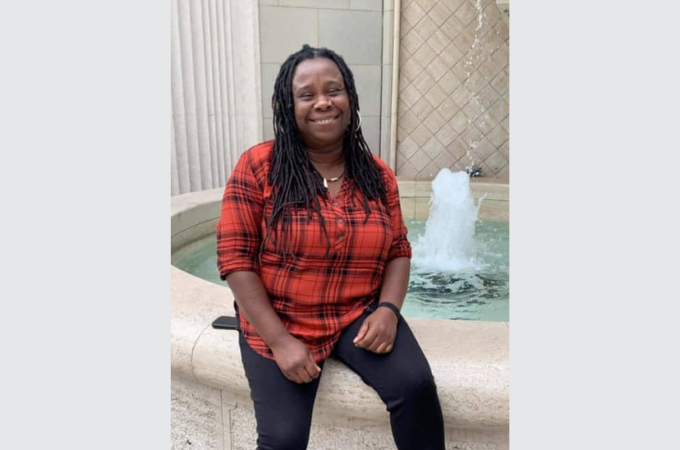
Nigerian author Unoma Azuah was interviewed by Erik Gleibermann for Curve Magazine, a prominent platform centered on lesbian experiences and culture.
Azuah is a pioneering figure in the literary documentation of queer experiences. She edited the anthologies Blessed Body: Secret Lives of the Nigerian LGBT and Mounting the Moon: Queer Nigerian Poetry. Her debut memoir Embracing My Shadow: Growing Up Lesbian in Nigeria, a Brittle Paper anticipated read, is Nigeria’s first memoir centered on lesbian experiences.
In the interview with Gleibermann, she talks about her memoir, the reality of living as a lesbian in Nigeria, the effects of homophobia, and her connection to indigenous Nigerian spirituality.
On creating a redemptive lesbian narrative in a toxic, homophobic clime:
“I didn’t really have an agenda except to tell my story. And it wasn’t all gloomy. There were beautiful moments I shared with some beautiful women. I wanted to present a balance. It was a mixture of bright moments and dark moments. It speaks to the purity of love, the beauty of it that looks beyond the judgment and the morality. And it can be discovered anywhere, in wartime, in a convent, in a garden, in a marketplace. Even all the repression in Nigeria could not stop it.”
On the importance of her indigenous Nigerian religion in re-enforcing her belief in tolerance:
“I was lucky to have spent a lot of time with my grandmother. She was the greatest force in my life, the most affirming and nurturing woman. I was exposed early to African spirituality through her. She was a latecomer to Christianity. She was the one who would tell me you are special, that you are different doesn’t mean anything. You are the type of person that the gods use to convey a message to heal, to prophesy. You are beautiful and a child of this goddess Onishe and she will always protect you.
On emphasizing her LGBT activism in her memoir:
“It’s very important because growing up I didn’t have any role models. There were few stories about lesbians and where they did exist, they were always negative. Nobody was speaking up and I wanted to speak up. That led to my activism and since I felt quite early that I can write, that became the tool of activism that I decided to use. There has been no literature for young lesbians to reach out to. A lot of Nigerian lesbians now write to me and thank me for the memoir and also for the writing I have done before, the poetry and short stories.
Read the full interview on Curve Magazine.









COMMENTS -
Reader Interactions